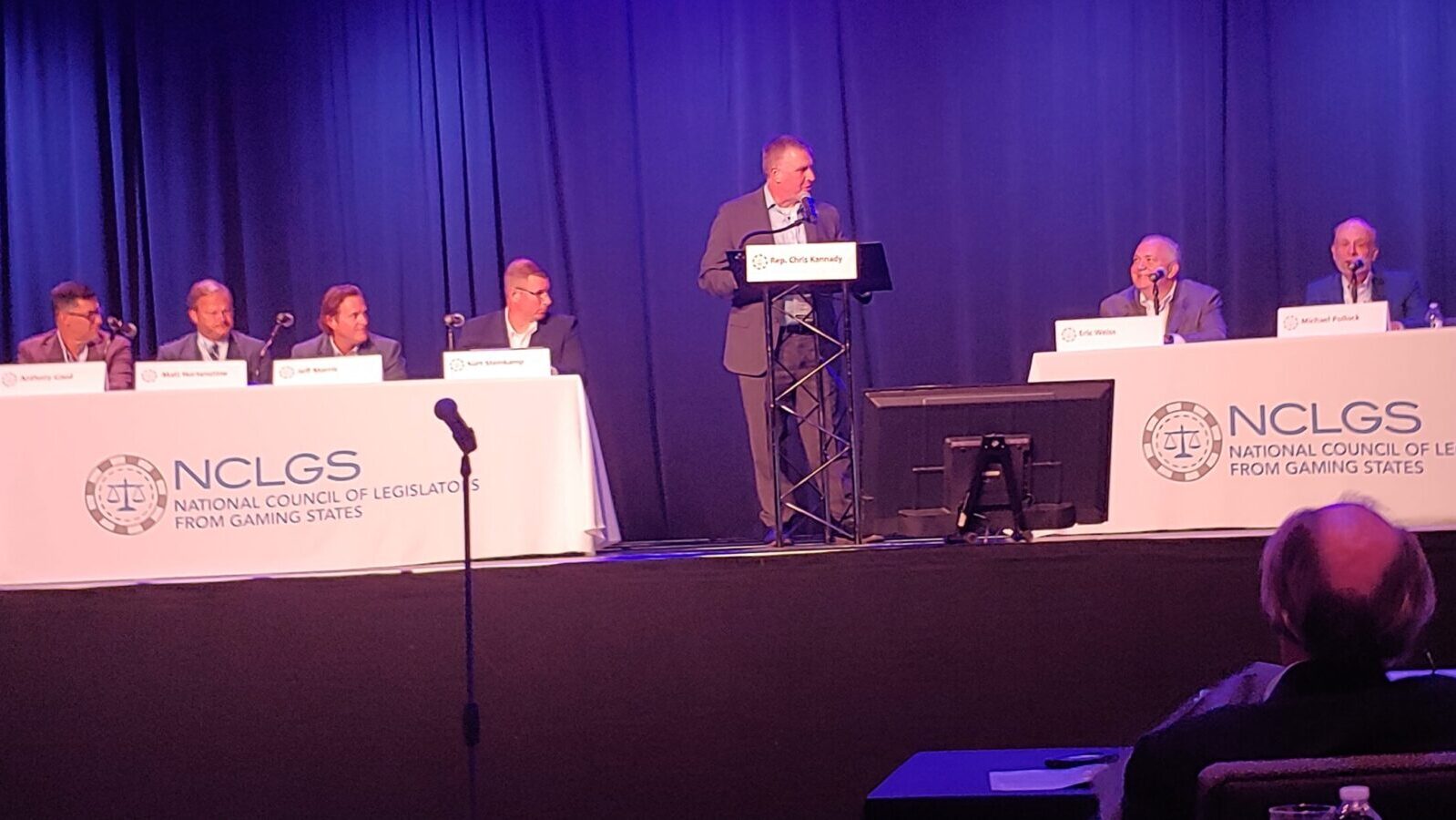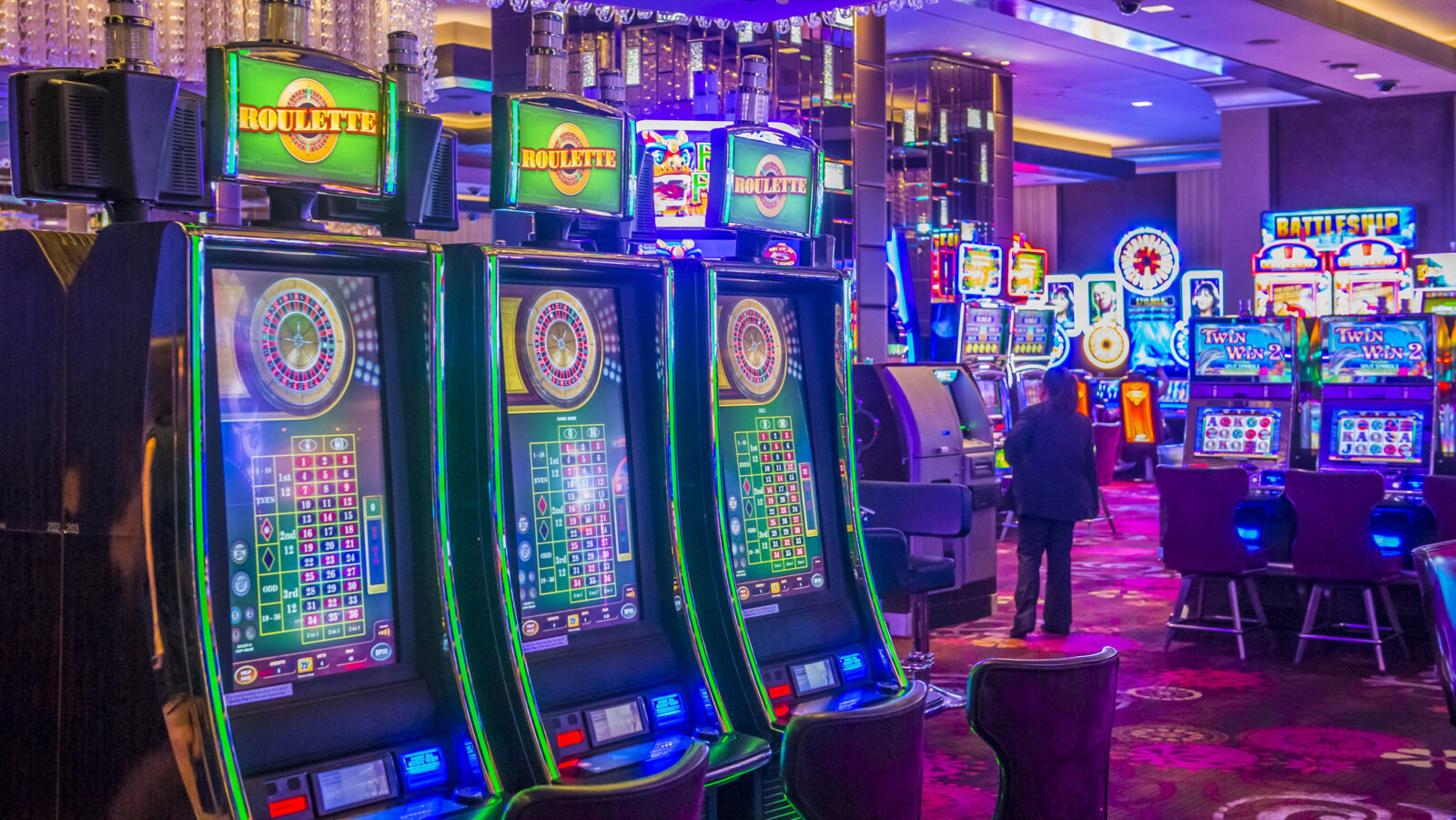Regulation, Retention, Or Removal? The ‘Skill Game’ Debate Rolls On At NCLGS
“The only way you’re going to solve it is to create a regulatory environment that speaks to the issue of proper licensure," one insider said.
2 min

When it comes to unregulated gambling industry competition such as the “skill games” that have proliferated in many states, attendees at the National Council of Legislators from Gaming States summer meeting were advised to consider an option beyond regulating them or leaving the status quo.
In a panel discussion Thursday, Michael Pollock, senior policy advisor for Spectrum Gaming Group, urged state lawmakers participating in the conference to also weigh “the most difficult choice, which is to take the games out.”
Referring to the owner of Pittsburgh’s Rivers Casino, where the gathering took place, Pollock said, “Companies like Rush Street … have invested billions of dollars based on a process they went through, based on rules that they came in, demonstrated good character, honesty, and integrity. Changing those rules at a later date undermines that entire process.”
That point was made from the casino industry itself by Jeff Morris, vice president of public affairs for PENN Entertainment, which owns multiple casinos in Pennsylvania, one of several states where proliferation of the unregulated, untaxed skill games has become a major issue.
He estimated there are many as 100,000 of the machines that resemble slots in bars, restaurants, clubs, convenience stores, and other locations around the state. If that estimate is correct, it would be about four times as many unregulated devices as the number of casino slot machines in Pennsylvania.
Waiting on a court ruling
Legislative proposals have been made both to legalize and ban the games in Pennsylvania, and Gov. Josh Shapiro proposed authorizing them this year in order to help the state’s budget. The legislature has lacked consensus and declined to act, while litigation over the games’ status has reached the stage of the Pennsylvania Supreme Court and awaits a final ruling.
While Morris said representatives of the casino industry have participated in negotiations with lawmakers over the possibility of skill games legalization, wanting to ensure that the devices would be taxed at a similar rate to casino slots, smaller in number, and with similar protections on age and problem gambling guidelines, Morris said skill games representatives “walked out” of those discussions in Harrisburg.
“I think they prefer the status quo where they don’t get taxed and they continue to rake in billions of dollars and contribute millions of dollars to legislators,” Morris said.
Of the idea of legalizing the games in a way that could harm Pennsylvania’s 18-year-old casino industry, Morris said, “When the ground is always moving, it becomes very difficult to consider where you want to expend your next capital.”
Also objections to online competitors
In addition to retail skill games, the similarly unregulated online version of them and the increasing availability of real-money sweepstakes games were also discussed as a rising threat by a panel of gaming industry representatives and regulators.
All of the different types may not be described as “gambling” by the operators and their legal consultants who skirt around laws in various states, but panelists said they represent unfair competition, whatever they’re called.
“The law has simply not caught up with the terminology,” said Matt Hortenstine, general counsel of J&J Ventures, a major supplier of legal video gaming terminals in Illinois and other states that receive tax revenue from them. He recommended that states pass laws to legalize machines that are going to exist anyway, as the benefits of proper monitoring would follow.
“The only way you’re really going to solve it is to create a regulatory environment that speaks to the issue of proper licensure, a path to legality, and creating guardrails for protection of the consumers,” Hortenstine said.
Kurt Steinkamp, chief of staff of the Michigan Gaming Control Board, explained that even with a clear state law that bans any form of gambling that has not been specifically authorized by the legislature, illegal competition exists in Michigan and the state has resorted to cease-and-desist letters to shut down some operators. It also has investigators who have acted to shut down some standalone parlors with gambling devices, which Steinkamp said can be a haven for additional crime beyond illegal gambling.
He noted that any decision about whether to widen the gambling possibilities in the state by legalizing machines outside casinos is an issue for lawmakers, rather than the board as regulator.





